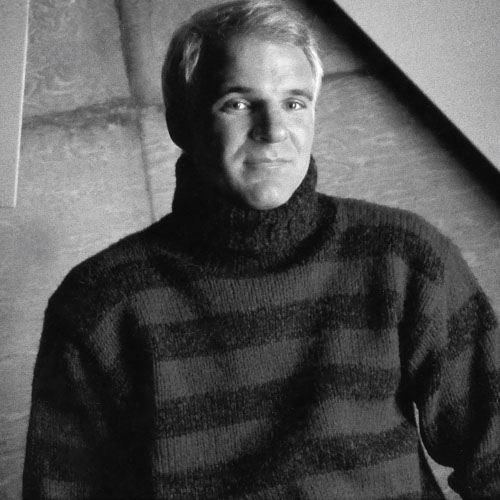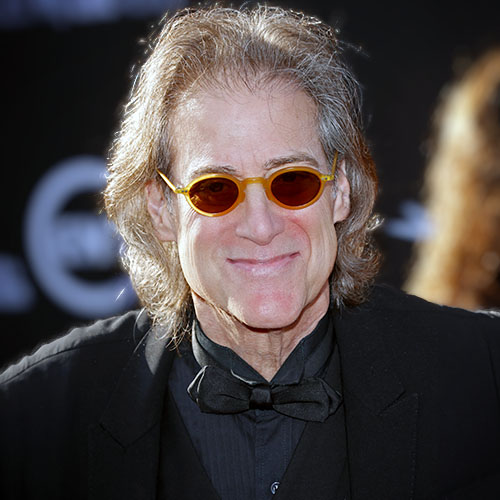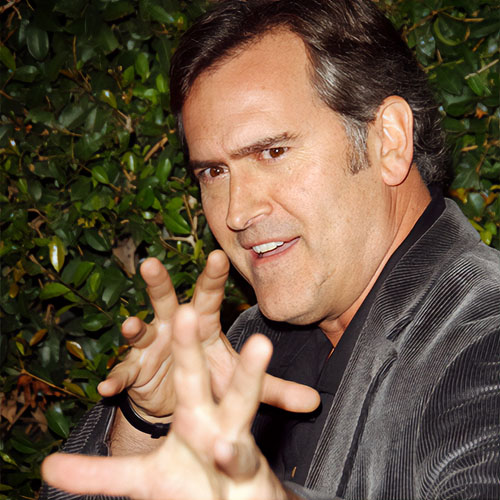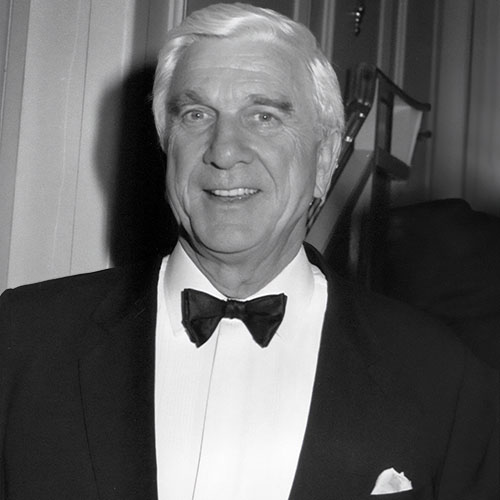Here’s lesson No. 1: Never say to Chuck Norris “Go ahead, Norris take your best shot.” If you do, what happened to me will likely happen to you
Be Careful What You Say to Mr. Norris
I had walked into his suite at the Barbary Coast Hotel in Las Vegas. It was one of those opulent rooms that you sometimes see in Vegas high-roller movies. It was certainly expansive enough that Norris was able to convert the living room into a gym merely by moving a few couches to the side. Norris, wearing an all-black workout suit, was training with two other black belts. For the most part, Norris and his much younger sparrers were nothing but blurs — kicking, spinning, jumping, chopping blurs.
As I sat down on the couch, Norris stopped and turned to me. “Here, take this,” he said, handing me a bright-red pad. Then he told me to get in the center of the room and hold it down by my side. “I’m going to kick the pad now,” he warned me.
I grinned as I looked at the sweating man who was almost 25 years older than me. Then I said it: “Go ahead, Norris, take your best shot.”
I’m not sure exactly what happened next. I do remember sailing through the air and landing flat on my ass. He helped me up.
One of his trainees turned to me and said, “That wasn’t anywhere near full impact.”
Norris nodded and said to him, “Well, I didn’t want to knock his arm out of its socket.”
Nice guy, this Norris.
In fact, that’s what you mostly hear when you talk to people about him. “Nice guy.”
While the other action-adventure stars — Seagal, Van Damme, Stallone — have been quick to criticize one another, Norris has kept out of the fray. In fact, he seems to totally shun the environs of Hollywood. He has recently moved to a ranch in Houston, Texas. Since his divorce from his wife Dianne, to whom he was married for 30 years, Norris hasn’t dated a single celebrity. In fact, the woman who Norris introduced to me as his girlfriend was a beautiful woman in her forties with six children.
There is one other thing about Norris. He is not exactly a “promiscuous” interviewee. Unlike his counterparts (Arnold especially), we rarely see him on magazine covers or talking with Bryant in the morning. Yet he has become one of the most important actors of the past decade. No, you’ve never seen him accept, or even present, an Oscar. There is no Academy Award for Best Body Count. What Norris has done is single-handedly create a genre.
Years ago, before anybody could even pronounce “Schwarzenegger” or “Van Damme,” Chuck Norris was defining the lone-wolf action-adventure hero. The traits that Norris brought to his films became the common denominator of all such films. First. the hero was never in jeopardy — or at least you never doubted that he would survive. He was king of the hill. Second, the hero spoke very infrequently. Most of his words consisted of tag lines like “Go ahead, make my day” or, Norris’s personal favorite, “If I want your opinion, I’ll beat it out of you.” Third, there was almost no sex, but very big guns — perfect Reagan-era symbols. Fourth, Norris was a one-time professional athlete who brought his talents to the screen.
Part Irish and part Cherokee, Norris was born on March 10, 1940, in a small· town in Oklahoma. His father, with whom young Carlos Ray Norris would be in mortal conflict for years to come, fainted during the delivery — a moment that Norris would recreate years later in a film called Hero and the Terror.
By the time he was 15, Norris and his family had moved some 13 times, his father drifting from job to job. He vividly remembers his father as an insatiable drunk. In his best-selling biography The Secret of Inner Strength, Norris explains why his mother never left her abusive husband: “She probably thought that a part-time father was better than no father at all.”
Perhaps it is his relationship with his father that drew Norris to the disciplined worlds of the military and the martial arts. After joining the air force and becoming a black belt. Norris won six consecutive World Karate Championships. And while most retired athletes just fade away, Norris became one of the rare few to become a considerable box-office power.
But even beyond that, Norris has kept his hand firmly in the karate arena, having formed his own federation of karate students. During one trip to Vegas, I witnessed Norris reigning supreme over “his black belts,” young men and women who view him as their god. Maybe that’s because, as one of them told me, “he can still kick any of our asses into the ground.”
Norris has one thing above all other comers — his longevity. He has made 24 films over a quarter of a century. The first role that he “confesses” to was in an action thriller called Good Guys Wear Black. (Actually, it was a bit part in a silly Dean Martin film called The Wrecking Crew, made in 1969. This was followed four years later by what many consider to contain his “real” debut — the gladiator in combat with Bruce Lee in Return of the Dragon.) Released in 1979, Good Guys was a low-budget effort that rode his celebrity status as a karate champion. But it made back its money ten or 11 times over, and soon enough, Norris was a box-office power.
It wasn’t until Missing in Action, released in 1984, that Norris became a veritable superstar, although even then the critics were not taking him seriously. That all changed, however, when Norris was offered the lead in Code of Silence, originally intended for Clint Eastwood. Released in 1985, the film was universally praised and became the first Norris picture to get inundated with blurbs for its print and television ads.
Since then, Norris’s fortunes have been steady but unspectacular. He made two more Missing in Action films; The Delta Force, which was marred by the tragedy of a helicopter accident; Firewalker, with Lou Gossett, Jr.; and a couple of other forgettable films.
Part of the problem is that Norris is locked into a contract with Cannon Pictures. He has been vociferous about his antagonistic feelings against the former heads of the studio, Yoram Globus and Menachem Golan, for not seeking out appropriate scripts for him and, even worse, not backing their own pictures. But now, under new leadership, Cannon may be just the right home for Norris.
At the age of 51, Norris has seen his latest film for Cannon, The Hitman, receive the type of critical hosannas that were once a part of his daily routine. Next up is a project called Sidekick. Currently being filmed in Houston, it deals with a wheelchair-bound child who, under Norris’s tutelage, becomes a karate champ.
It’s been rumored at press time that Norris has been approached by Texas Republicans about running for national office, and that he may be approached to seek the post of Los Angeles County sheriff, when and if the current beleaguered sheriff, Sherman Block, retires.
This should come as no surprise. Norris has a unique combination: He is an arch-conservative, his friend George Bush is a powerful ally, and his Q-ratings exceed that of almost any other working actor today.
I met and chatted with Norris over six days, the first five in Las Vegas (where he is part owner of the Gold Coast Hotel) and the final one at his estate in Tarzana, California.
Steven Seagal calls you up and says, “Chuck, I need advice. How do I survive in this business for the next 14 years?”
Norris: Well, first of all, he wouldn’t call up and ask me for advice.
Why not?
Norris: Because Seagal is a major star now. He did it. Everyone has their own paths to success. Seagal has taken his path, and Jean-Claude has taken his. And the paths may all end up at the same point. So the path Seagal took is not the same as mine — because his personality is different than mine. Seagal has a more aggressive style than what I have. I’m sort of an introverted, passive type of guy. And I don’t want people to think I’m too set on myself, where I don’t have a focus on what I want in life and where I have to try to convince people that I’m better than what I really am. When you say, “I’m so great, I’m the best,” then what could people say? If you’re always saying how good you are, then you don’t give the other people an opportunity to say how good you are.
Didn’t you train with Van Damme?
Norris: Jean-Claude came over from Brussels, he worked out with my training partner. And Bob called up and said that Jean-Claude wanted to work out with me. And I said, “Well, if you recommend him, fine.” So Jean-Claude came over and I liked him. We got along, and so he started training at my house every morning. Jean-Claude trained with us for about a year, and then I was leaving for the Philippines to do Missing in Action. And the man who traveled with me, who was like a workout partner for me, had quit to become an airline pilot. So I asked Jean-Claude if he would like to go over and work out with me and maybe get a part in a film or something. And so he did. We went over to the Philippines and started filming. We were working out together and all this stuff. And then he got an offer to do a movie in Hong Kong.
How did he get an offer? Did you help him?
Norris: No. This was before Blood-sport. This was another film that he had been offered to do in Hong Kong, another film totally. And so he said, “I’m going to go to Hong Kong and do this.” I said, “It’s fine, but I hired you to work for me during this film.” I said, “If you go, I’ll have to find someone else to work out with me.” And so he left.
Did he give you a good workout?
Norris: Oh, yes. Jean-Claude is good. He’s a very determined young guy, knows what he wants, and he works like a son of a gun to get it. I respect Jean-Claude for that.
Is he going to be a big star?
Norris: I think he has the potential for being a big star.
Many of your films have a Vietnam bent to them — either they’re directly about Vietnam or your character is a Vietnam vet.
Norris: Well, my emotional connection is my brother. I lost a brother in Nam.
Wieland?
Norris: Yeah, Wieland. And that was one of the key reasons I have done so many missing-in-action movies. Vietnam became a very personal thing with me in the beginning, when Wieland went over. You know, I was initially gung ho for Vietnam. I said, “Let’s be in this war.” Again, the typical patriotic American. But as he was over there, I was getting letters back from him with him questioning whether we should be there or not, that it was a war that couldn’t be won. And then when he was killed, I really re-analyzed this. And I realized finally that Vietnam was a war that we should not ever have been in.
There was an eerie quality to your brother’s death.
Norris: He had premonitions as a young child that he wouldn’t live to be 28. He died a month before that.
Have you been to the Vietnam Memorial?
Norris: Several times.
Tell us about the first time you saw his name.
Norris: Well, it was very emotional. Seeing his name up there — it was almost re-emphasizing the fact that I’ll never be able to see him again. Of course, I cried, and my mom was with me; everybody cried. Just seeing those names up there is very, very emotional. And seeing those vets there, and seeing them crying — it’s tough, boy, I’ll tell you.
Wasn’t your father an MIA for a little while?
Norris: Yes, he was. He was in Germany and he got buried in a foxhole, and we got a letter saying that he was missing in action. And we didn’t know anything until he came home. Actually, he showed up at home before we knew that he was found.
Do you recall the exact experience?
Norris: I was very young — I was only five — and so I can’t relate back to it. But my mom told me about it. She didn’t know whether he was alive or dead. Then all of a sudden, he just came home.
Did that MIA period have anything to do with your MIA films, or was it basically Wieland?
Norris: Basically it was Wieland. You know, war leaves an everlasting impression on the people who are involved. It ruins a lot of lives. It ruined my dad’s life. My dad became an alcoholic through this. He was wounded, and had nightmares the rest of his life from the war. You couldn’t walk up to him and tap him when he was asleep, because he was like a tightwire — he’d spring up. You had to be careful. The war really ruined him.
Do you find that Vietnam veterans are discernibly fans of yours?
Norris: Yes, very much so. As chairman of the Hospitalized Veterans, I traveled around to all the veterans’ hospitals and made personal appearances. I had a chance to meet a lot of them, and I met several POWs who had suffered the tortures of the Vietcong. I saw one man who was 42 and he had the body of a 75-year-old. And to see this poor guy who had to walk hanging on to a handrail down the hallway because of the beatings that he had taken as a POW was really, really disheartening. It really hurt.
There was a scene in Missing in Action 2 with a rat …
Norris: That really happened. I got that from some POWs talking about some of the tortures that they went through. They were tied up and had a sack put over their head with a rat in it. There is a scene where a POW is burned. That really happened to a POW. He was burned alive.
Do you happen to know how your brother died?
Norris: Yeah. He was in a squad and he was walking point. He saw a trap being set up by the Vietcong. He yelled back to his unit to watch out. And when he did, the Vietcong turned their fire on him.
But he saved lives.
Norris: Yeah, he got a Bronze Medal for it. Wieland was not only my brother, but he was one of my black belts, one of my instructors, and one of my best friends. We grew up really relying on each other for support when we were young. So there was a bond between him and me that was closer than just being brothers.
“I’ve been scared …. But I can’t remember being this scared ever in my life. I mean, getting up and doing something that you had never done in your life.”
Sometimes actors are called upon to recall emotional experiences in their lives in order to create a certain mood. Is this what you use?
Norris: I don’t do it too often. But there was a scene in the second MIA film where I was watching a man being burned — my best friend. Of course, on film you’re not seeing anything. All you’re doing is looking into a camera and trying to bring up something to create that emotion. And the emotion that I brought up in my mind was when I was first told that my brother was killed.
I was refereeing a karate event at the time. And I got called to come to the phone. And on the phone was my mother, crying and saying that Wieland had been killed. It was funny, because everything was quiet for a moment. And I remember the first thing that came to my mind was, I’ll never see him again. As soon as I thought that, boy, the tears started rolling.
Karate is a type of sport where you are taught to have a poker face. But you must do the opposite in acting.
Norris: Well, intensity comes from the eyes, even as a fighter. You may maintain a stoicism in your face, but everything is right in your eyes, even as a fighter. And when I used to walk down the aisle to the ring, I’d have friendliness in my eyes, smiling. But when I got in the ring, everything changed — especially in the eyes. All of a sudden that determination would come in. And on the screen it’s the same thing. See, it isn’t the talking — it’s your eyes. Because people remember more of how you look than what you say.
Wasn’t Steve McQueen instrumental in you getting into the business?
Norris: He’s the one who recommended it. I lost all my karate schools; I had ·to sell them to avoid a bankruptcy. And Steve was still one of my students. And he was the one who said, “Why don’t you try the acting field?”
So what did you think when he told you that?
Norris: I said to Steve, “You know, I’ve never even done a high school play. I’ve done the Bruce Lee movie, but all I did was get off the plane to fight Bruce. There was no acting involved there.” He said, “Acting is having a presence on the screen.” And he said, “I think you’ve got it.”
How did you even break into the business?
Norris: Well, now, remember this is in my flat-broke days. And I’m fighting to avoid a bankruptcy. And so I start checking out acting schools in Hollywood. And they’re expensive. So I finally found an acting school — it’s Estelle Harmon’s — that I could go to on my GI Bill.
Do you remember your first day?
Norris: Yeah, God, the first one — I’ll never forget. I was a world karate champion then, right? I had to be interviewed. So she asked me what I did, and I said I taught karate and I was a world champion. So I go into class and the first thing she says is, “Class, this is Chuck Norris, the world karate champion.” And I thought, Ah, shoot, I wish she wouldn’t say that.
And the third thing I had to do — I’ll never forget this …. What you do in class, you and a fellow actor — in this particular case, a gal — go out, and for 20 minutes you work on this scene. Then you come back and do the scene in front of the class. So I go out, and me and this girl rehearse this scene, come back in. And we do the scene in front of the class. And I mean, I’ve been scared in my life. But I can’t remember being this scared ever in my life. I mean, getting up and doing something that you had never done in your life.
And you’re the man who has fought some of the toughest men in the world.
Norris: I would rather have fought the toughest men in the world than do that. But anyway, we do the scene. And Estelle says, “You know, Chuck, for an athlete you’re the stiffest person I’ve ever seen.” This was really the most horrifying thing I’ve ever done. I kept forcing myself to keep doing this. I felt like walking out because I was so embarrassed. But I didn’t. See, what most people don’t understand — it’s not achieving the goal that makes you happy. It’s the working toward that goal.
Did they volunteer their opinions of your work?
Norris: They weren’t favorable. And it’s hard when you’re a successful person in your own right, all of a sudden to be stripped naked by your peer group, and they’re saying how rotten you were in that particular scene. It takes a lot to swallow.
Would you ever play a villain?
Norris: It depends on what stretch you want to do. See, to a certain extent you’re a personality actor. The people see a certain person. And when you veer too far from that particular person that people identify you as, I think you’re really gambling with your career. There’s a lot of Chuck Norris in everything Chuck Norris does. Now, in my latest film, there is a dark side to my character.
The Hitman.
Norris: It’s the darkest I’ve ever played in a film. And it’s about as close to being a bad guy I ever want to play. Because in The Hitman, I do play a murderer, I do kill. So I can’t say I wouldn’t play a murderer.
See, this man is different than anything I’ve done before. It shows a darker side which I’ve never portrayed before. A man who is in a position, who has become as bad or worse than the man he’s trying to apprehend. I talked to a lot of cops who had to go deep undercover about what they had to go through. And I had to keep it real. Everyone has multiple personalities. No one’s totally dark or totally bright. And so I’m trying to show different sides to him. And whether it came across or not … You’re always very critical of yourself, you’re always your own worst critic. I always am.
What have your peers said about this film?
Norris: They really like my character. They like me being a little more on the dark side. Because I’ve been too nicey-nice, goody two-shoes in the past.
Why did The Hitman get an NC-17 rating?
Norris: I’ll tell you what’s really irritating — and I’ll put this publicly. The M.P.A.A. is very prejudiced. If you’re a major studio which supports the M.P.A.A., then they’ll let you get away with things. Look at Seagal’s films. At least as violent or more so than Hitman — R rating. You look at the movies that are A-rated — Terminator 2. If you’re an independent, it goes before them, they say, “Oh, well, we don’t have to worry about them, they’re not supporting us, so we don’t have to worry about a backlash. Give ’em an X or an NC-17.”
That’s what they do — they do it to Cannon. It would be funny, except it’s hurting our film. And because of that, it’s not funny. And it’s not fair for them to do that. And because of that, that’s why I’m very down on the rating board. Because they’re not consistent when they’re rating. I mean, they cannot rate a Warner Bros. or Universal film one way and rate an independent film another way. It’s not fair, and if they’re going to do it that way, then they should not exist. They should have somebody else decide what films should be rated what.
What about sex scenes? How far are you willing to go?
Norris: There’s a limit to that. I still have a very young following. It amazes me to have five-year-olds come up and know me, and it kind of amazes me because my movies are violent. But I don’t do violence for violence’s sake.
It’s interesting you should say that, because some of your earlier films, I think, were miscategorized.
Norris: As “chop-saki” movies.
Chop-saki movies are violence for violence’s sake.
Norris: Exactly. But if you look at my films, I’ve never done a chop-saki movie. In my movies, the good guys wear black. My first main film dealt with a story about Vietnam, the black tigers who were very famous over there and were very political. It’s a political-intrigue movie. And I did a little bit of karate in it. But the media immediately called it chop-saki. How can they put me in the same category as these kung-fu movies?
It took a long time for me to break that stigma. Lone Wolf McQuade was the beginning of the break for me. After that they no longer called it chop-saki. They started calling them action-adventure films.
Your willingness to do your own stunts has often resulted in you almost getting yourself in trouble. There was that scene in one of the Missing in Action movies where you get lifted —
Norris: Out of the water.
What happened there?
Norris: Well, what happened is that the scene called for me to rescue one MIA. He’s out in the water, and the helicopter drops the ladder down. I’m supposed to hold the ladder while the guy climbs into the helicopter. What we were going to do is have a stunt double hook himself to the ladder and then get pulled out. But the wind was blowing real bad that day, and so they felt, well, it might be too dangerous. So we decided I would hold on to the ladder myself and let them walk in, and then the helicopter would pull me out of the water; then they’d cut. And so I said fine. I get out there and I’m up to my neck in water, holding on to this ladder, and the guys climb up into the helicopter. And somehow we get miscommunication and the pilot takes off with me, straight up. And I mean, I have no safety on, nothing, and he pulls me up, flying me right over — fortunately, the cameraman kept filming. I’m looking down from 300 feet in the air. I look down and my brother’s trying to find a boat to follow us. And finally they radioed the pilot.
But anyway, I’m hanging on there and I’m looking down and thinking, what if I drop — would it kill me? I have full combat gear on and all that. If I drop down from there, would I be able to stay afloat long enough for them to send a rescue vessel out there?
How do the insurance companies that deal with the movies feel about you doing these things?
Norris: Of course, they don’t like that at all. I shouldn’t be doing them. And I guess it’s a certain ego thing with me. When you do an acting scene, you don’t know if it’s good or bad until you see it. But with a stunt, you know immediately whether it’s good or bad. And there’s that immediate gratification of successfully doing a stunt.
Have you been exploring options of doing films about the Gulf War?
Norris: I’ve done enough war movies. I don’t want to do any more.
Many people say that the one big problem Chuck Norris has is either a tremendous loyalty to Cannon or a contractual bind with Cannon. He needs to work for Warner Bros. or somebody who can market his films better. Why this devotion to Cannon Pictures?
Norris: I signed a contract seven years ago to do films for Cannon, and it’s a commitment. My handshake is as good as a signed contract. I may regret it, and I realize, “Oh, I wish I hadn’t done that,” but I’m still going to do it. And that’s my persona. I went through a lot of thinking. Do I want to sign a long-term contract with Cannon? Well, Cannon, at the time I signed, was at the top of the heap. They were on their way to becoming a major studio in Hollywood. And I signed with that in mind. Unfortunately, it didn’t work out that way.
Now, with Chris Pearce, who’s the new head of Cannon, it may be different. If something came up, Chris would let me go. He doesn’t want to stand in the way of my career. I have the latitude to do other things.
Out of curiosity — how do you feel about having your ex-wife Dianne’s name tattooed on you?
Norris: Well, you know, it’s there. It’s been there so long that it’s like part of my body, I guess.
Your girlfriend is not stressed by this?
Norris: No, she doesn’t get bothered by that part of my life.
A very significant part of your life.
Norris: Yes, it is. Being a man who went from a mother to a wife to divorce, and for the first time in his life really being alone, it’s a tough thing to deal with. I like relationships; I’m not a guy who likes to date around. I like solidity. And Monica, my ex-girlfriend, was that person for a period of time.
Do you miss Dianne?
Norris: Dianne is one of my best friends. Dianne and I will always love each other. But the communications — the things that keep the marriage together — were no longer there, the glue that kept the marriage together.
You still talk to her?
Norris: Oh, absolutely, we still talk.
We still care about each other. Like I said, it’s just that with marriage, as you grow, you constantly have to make adjustments in the marriage. And if you don’t make those adjustments, then it’s going to crack. Dianne was one month from 17 and I was 18 when we got married.
If your son had come to you at 18 and said he wanted to get married —
Norris: I would strongly discourage it, because it’s very difficult.
There was one thing that you knew about Dianne, and that was that she fell in love with Chuck Norris the guy. Is it difficult now, when women want to date you?
Norris: I don’t know. I don’t let that enter my mind. I think I’m a nice guy. I really do. I think women can feel a certain compassion for me. I’m not insecure in myself or wondering whether the woman’s dating me because I’m Chuck Norris the actor or Chuck Norris the person. And I don’t get into this dilemma within myself, because then I’m not going to enjoy the relationship. If I start wondering what the ulterior motive is, then the relationship’s not going to work. So if they’re dating me because of the actor, so be it. If I’m enjoying that moment, I don’t care.
Have you ever dated another celebrity?
Norris: No. It’s very difficult to have two professionals have any form of a relationship. It takes a lot of understanding to make something like that work. Most of them don’t work, as you notice. You read about it all the time.
Well, Chuck Norris, what do you do now?
Norris: I haven’t achieved the epitome of success in my film career. I still enjoy the hell out of doing films. And each time I do one, it’s extremely challenging and exciting. But also, just as equally challenging and as exciting is this anti-drug program, the Kick Drugs Out of America Foundation, that I’ve started.
Did you just lie in bed one day and come up with this idea?
Norris: It’s something that I’ve wanted to do for 20 years. It’s just that I didn’t have the time or the money, or the ability and the prestige, to do it. I didn’t have the status. See, what we do is have celebrities write letters. I ask a lot of celebrities to write two letters a year to a youngster who may be having problems — encouraging letters. President Bush was the first one. And then Nolan Ryan was my second one. We’ve got Tom Cruise. We’ve got a whole bunch of them.
“We’re trying to show that in school you teach reading, writing, and arithmetic, but nothing about strength of character.”
What do they say in the letters?
Norris: About eight years ago, I got a letter from a kid who was, like, 16 years old. And he had quit school because he said, “All I want to be is a karate teacher. I don’t need school to be a karate teacher.” So I wrote the boy back personally. I said, “Look, if you don’t even have the discipline to finish high school, how in the world are you going to have the discipline to be a good karate teacher?” I said, “Being a teacher, a karate teacher, is dedication, discipline, drive. You don’t have any of those. So I strongly recommend you get back into school, finish high school, maybe even college.” This kid went on to get straight As, winds up graduating with honors, goes to Stanford, and becomes an attorney.
So anyway, I thought, if one letter can do that, how about thousands of letters with the same encouragement to kids from celebrities or politicians or athletes, or whoever they admire?
In Houston we’re initiating the martial arts into the physical-ed program at three of the inner-city schools. What we’re trying to show is that in school you teach reading, writing, and arithmetic, but nothing about strength of character. Just saying no to drugs is fine, but how does a youngster deal with his peer group when they say, “Come on, do this with us?” How’s he going to say no to that? He doesn’t have the strength, the inner strength, to say no. What we want to do with these youngsters is to instill in them the ability and the strength to be able to say no to any outside influences, whether it’s drugs or any other thing.
Your children, Eric and Michael, grew up at a time when drugs were much more prevalent than when you grew up. And so prevalent that it’s impossible that they weren’t at least offered drugs.
Norris: I’m sure they were.
Did you ever have talks with them about how to deal with drug pushers, kids who were selling drugs?
Norris: I would always tell my kids, and I told my students, there will be a time when your peer group asks you to do something that you feel in your heart isn’t the right thing to do. At that point in time, you have to make a decision: Am I going to be a follower, or am I going to be a leader?
Eric had a little encounter with a drug dealer at school in the eighth grade. The guy was selling drugs, and was trying to get him involved taking one. The guy was the school bully. And they got into a fight and Eric whipped him.
And who got in trouble?
Norris: Eric — cause Eric whipped him up pretty good.
Didn’t he make him eat the drugs?
Norris: Yeah, I think he stuck it in his mouth.
What did you tell him afterward?
Norris: I said, “Eric, if anyone offers you a drug, you can stick it anywhere you want. You’ve got full authority to do whatever you want.”
Okay. You’re in a bar; you’re with Schwarzenegger, Stallone, Seagal, and Van Damme. Fists start flying. Who’s the first to drop?
Norris: You know, it’s really hard to say. I don’t know how any of them would be under fire. I’ve been under fire; I’ve been a professional fighter, I’ve been a world-title holder. I think all four of them would do quite well. But I don’t know which one would be the first to drop.
Okay, then who’s the last standing?
Norris: Me!
No one ever accomplished great things lacking confidence along the way. Of course we know at least a few really confident failures too, so there’s that. … On the definite “winners circle” side, however, we can explain the two lions in the background of the header image for this article, actually. (Because obviously you were dying of curiosity.) … You see, they are both rescues and happen to have the names Chuck and Norris, interestingly enough. Because Penthouse has historically favored animal rescue ventures of all types, we thought we’d encourage you to visit the Daniell Cheetah Project if you have the time. Fascinating stories, excellent photos, and a worthy cause supported by extraordinary people. They even have fun videos on the site proving, y’know … cheetahs are cool. Honestly that beats turning on the news anytime. … Should you wish another view of Viet Nam, you can gain that right here.



























